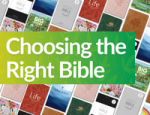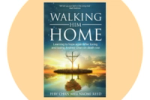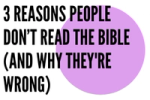CARE supports online safety bill
Claire Musters
The first legislative attempt to introduce an opt-in system for accessing internet pornography, was introduced to the House of Lords on Wednesday.

Copyright PictureYouth
The Online Safety Private Members Bill was introduced by Baroness Howe, who wants to require internet service providers and mobile phone companies to filter out pornographic content, unless an adult user specifically asks for it.
And the bill has won the backing of Christian charity CARE, who feel it is important that the government look at providing a safe online environment for web savvy children.
Momentum has increased on this issue following a study that indicates that one in three children have seen hardcore internet pornography and four in every five children aged 14 to 16 'regularly' access explicit photographs and movies on their home computers.
More than 50% of computers in UK households today do not have proprietary filtering software installed, and research also shows that two-thirds of children admitt to accessing explicit material on mobile phones.
The Private Members Bill is calling for internet service providers and mobile phone operators to provide a service that allows adult customers to make decisions about what sort of content they don't want on their home broadband or their children's mobile phones.

Baroness Howe, former chair of the Broadcasting Standards Commission
Lady Howe's Bill follows on from the work of Claire Perry MP, who in 2010 introduced a cross-party enquiry into online child safety. The government said at the time that they are in favour of the proposals put forward, but would like the pornography industry to self-regulate and bring about these changes without amending primary legislation.
Last year the industry made the pledge to bring forward self-regulatory measures, but did not go as far as endorsing the requirement to have an opt-in to access pornography through a filter at network level.
Baroness Howe said, "Historically, most internet content has escaped regulation. A laudable industry-wide effort in the UK resulted in the Clean Feed system that blocks illegal child abuse imagery, but there has always been a reluctance to block, or limit access to, other forms of adult material due to the international nature of internet content."
Dan Boucher, Director of Parliamentary Affairs at CARE said: "This is an issue that CARE has a longstanding stake in, which we have recently started putting more of our efforts into. It would be great if the government and the industry realised that something needs to be done other than simply relying on parents to bear the whole burden.
"The Bill is simple and would be effective. We know that the technology exists to make this a workable proposition. Talk Talk have implemented their HomeSafe product, which goes a long way to help parents, it's simple and effective so we don't see why other service providers cannot do the same."
Latest Blogs

Bible
Choosing The Right Bible
With more than 20 English Language translations each available in 25 or more different editions the choice of Bibles excites and bewilders. Choosing the right Bible for you is important - even if you already have more than one.

Spiritual Growth
LENT COURSES - How to choose the right one for you
Long overshadowed by the celebrations of Easter Sunday, Lent is being rediscovered as a sacred time of reflection and renewal in its own right and a time of preparation for the joyous seasonal finale.

Featured
Stocking Fillers
Here’s our pick of the top 3 Stocking Fillers this Christmas. You can find even more at our Christmas Store.

News
Where to Watch the New C.S. Lewis Film
Heading to a screen near you soon, The Most Reluctant Convert is a feature-length movie about the life and faith of one of England’s greatest Christian writers and thinkers: C.S. Lewis.

Interview
Author Interview with Feby Chan and Naomi Reed
Feby tells her compelling story in her book Walking Him Home. After wrestling with grief and suffering, she shares how God’s healing and faithfulness is enabling her to step into her new life and ministry.

Featured
3 Reasons People Don’t Read the Bible
We are currently in a strange situation. Bible sales are up, but the number of people reading the Bible is going down. Even stranger, this situation is nothing new. There has always been a difference between the number of people who own a Bible and the number of people who regularly read their Bibles.
